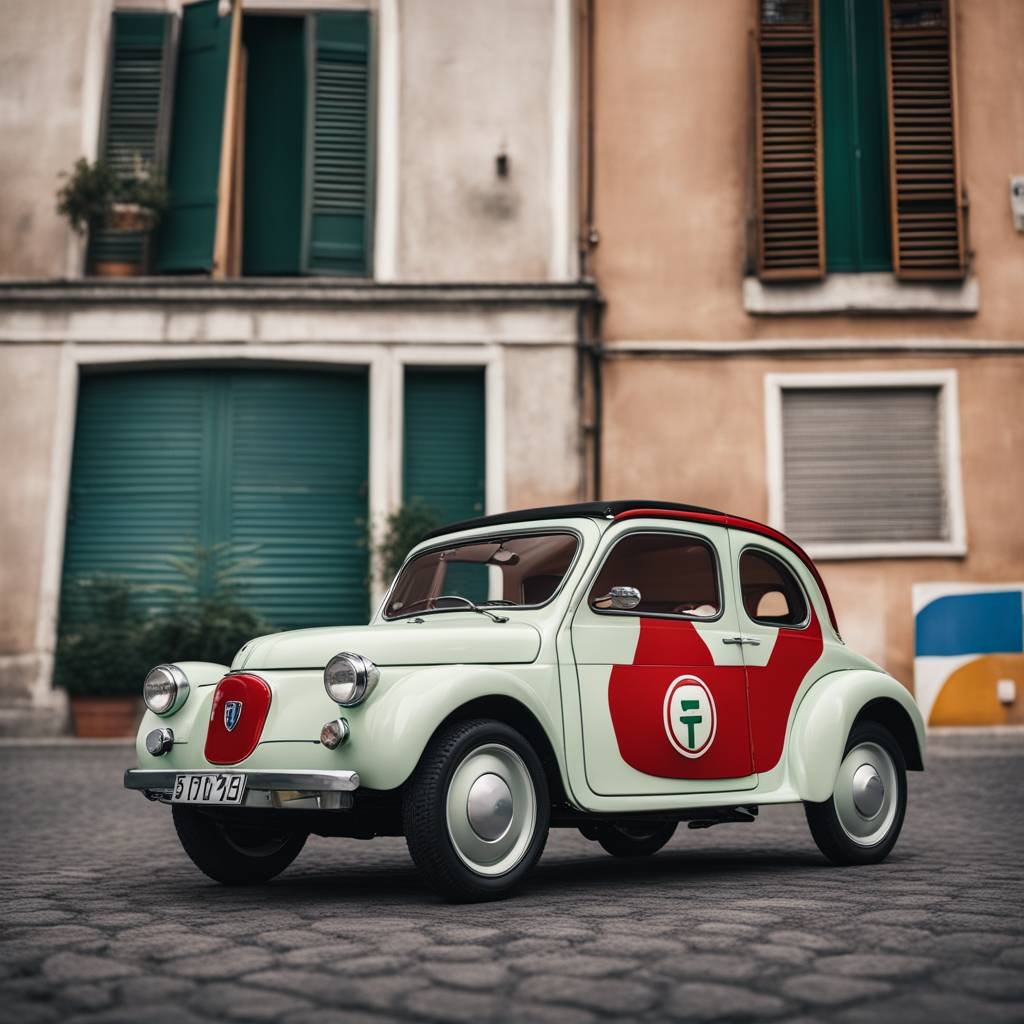Summary
– Italian government seized 134 Fiat Topolino cars for having a badge resembling the Italian flag
– Italy has strict laws against branding goods as Italian if they are not made in Italy
– The emblem on the Fiat Topolino was deemed too close to Italy’s tricolor flag, making the cars contraband
– Stellantis, the owner of Fiat, had to remove the small stickers to resolve the issue
– Italy’s trade regulations have also affected Alfa Romeo, which had to rename a vehicle named Milano, built in Poland, to Junior.
Article
Italy is known for its strict laws prohibiting the branding of non-Italian made goods, and a recent incident involving the Fiat Topolino exemplifies this. The tiny EV, made in Morocco, was held up at port as it sported a badge resembling the Italian flag, causing it to be deemed contraband under Italian law. This is part of Italy’s ongoing battle against misbranded goods, in which any products implying they are made in Italy when they are not are subject to seizure. The Fiat Topolino is not the only car manufacturer facing this issue, as Alfa Romeo recently had to rename a vehicle built in Poland after Italy objected to the name Milano. Italy’s strict enforcement of branding laws shows that it will not tolerate any imitation, no matter how well-intentioned.
Italy’s protection of made-in-Italy branding has been in place for more than two decades, with laws designed to prevent consumers from being misled by products with misleading branding. The Italian government’s latest move against the Fiat Topolino is just one example of its commitment to ensuring that items with Italian-sounding names or logos are actually made in Italy. The car, with its badge resembling the Italian flag, was temporarily seized upon arrival in Tuscany, as it did not meet Italy’s stringent branding requirements. This enforcement of branding laws highlights Italy’s dedication to maintaining the authenticity of products bearing the made-in-Italy label, even if it means delaying the release of new models or forcing companies to change their branding.
The Fiat Topolino, translated as “little mouse,” is a Moroccan-made EV that ran afoul of Italy’s strict branding laws due to its emblem resembling the Italian flag. This small sticker led to the temporary seizure of 134 units of the Topolino, including the Dolcevita model, as officials deemed it contraband under Italian law. Despite Fiat’s attempt to clarify the badge’s purpose as indicating the entrepreneurial origin of the product, Italy remained steadfast in its decision to enforce its branding regulations. This incident is part of a larger trend of Italy cracking down on products that mislead consumers into thinking they are made in Italy when they are not, illustrating the country’s commitment to protecting the authenticity of Italian-made goods.
Stellantis, the parent company of Fiat, has also faced challenges with Italy’s branding laws, as seen in the case of Alfa Romeo’s naming dispute over a vehicle built in Poland. After initially naming the SUV Milano, Italy objected to the name as it implied Italian origin, prompting Alfa Romeo to rename it the less distinctive Junior. This incident, along with the Fiat Topolino debacle, underscores the Italian government’s strict enforcement of branding laws and its insistence on upholding the integrity of products bearing the made-in-Italy label. Companies must navigate these regulations carefully to avoid penalties or delays in bringing their products to market, as seen with the Fiat Topolino’s temporary seizure at port due to its misleading emblem.
Italy’s protection of made-in-Italy branding extends to all industries, not just automotive, as evidenced by the recent incidents involving Fiat and Alfa Romeo. The country’s laws prohibit the importation and sale of any goods that might confuse consumers into thinking they are Italian-made, leading to seizures and renaming disputes with international companies. Italy’s firm stance on branding regulations demonstrates its commitment to preserving the authenticity of products bearing the made-in-Italy label, even if it means companies must alter their marketing or branding strategies to comply. The Fiat Topolino and Alfa Romeo incidents are cautionary tales for companies looking to do business in Italy, emphasizing the need to adhere to the country’s strict regulations on branding and marketing to avoid costly penalties.
Overall, Italy’s recent actions against the Fiat Topolino and Alfa Romeo reflect the country’s unwavering dedication to protecting the integrity of products bearing the made-in-Italy label. Through strict enforcement of branding laws and proactive measures to prevent imitation, Italy ensures that consumers can trust the authenticity of products with Italian-sounding names or logos. Companies operating in Italy must navigate these regulations carefully to avoid running afoul of the law and facing penalties or delays in bringing their products to market. Italy’s commitment to upholding the values of authenticity and quality associated with Italian-made goods sets a precedent for other countries looking to safeguard their branding and marketing practices against imitation or misrepresentation.
Read the full article here



